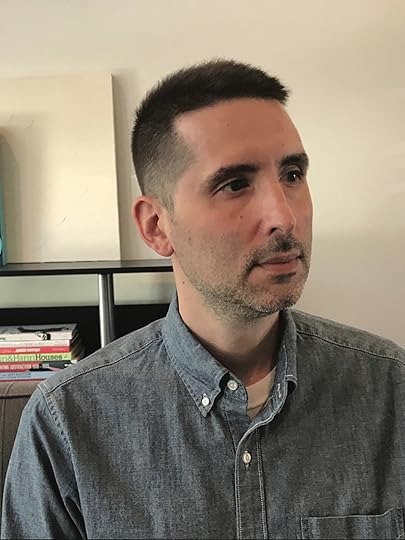What do you think?
Rate this book


336 pages, Hardcover
First published June 2, 2020
What do you do when you have nothing left? Nowhere to go? What kind of person are you forced to become?This is a tale of two desperate men, driven from their homeland by greed and inhumanity, seeking a new life in a new place. But there are no direct flights from the one to the other, not for working class people like Seidu Mohammed and Razak Iyal. Theirs is an odyssey that takes them from Ghana to Brazil, through South and Central America and into the United States, where we first meet them.
---------------------------------------
...among the cacophony of so many different languages, so many different cultures, the pervading distance, the relentless uncertainty, all of it made clear that so many people from across the world were fleeing their homelands, had chosen to give everything up, under threat of life and limb. What did it say about how the world, how these distinct nations organized themselves? How could so many people be so unhappy as to risk their lives in exchange for a chance of some other way of living? Was the world really that broken?


Over the past thirty years a nearly invisible network of uncoordinated, small-scale smugglers had evolved into a highly organized enterprise. As the tide of migrants traveling to the United States grew throughout the twenty-first century, what was once a low-level, oftentimes family-run operation had become a multibillion-a-year business. Criminal organizations—including transnational drug traffickers—began to use human smuggling as an additional revenue source to support other illicit activities.The portrait painted here is of an enterprise that preys on the desperate. Not just the human traffickers and the thugs with whom they work, but the police who demand money from the migrants, using their government-sanctioned authority as a weapon against the defenseless. Meno points out that for many living in the communities the migrants traverse, feeding on the frightened and disarmed is among their few sources of income. It reminded me of lions feasting on wildebeests as they make their annual migrations.
There was almost nothing to distinguish one country from another anymore. The sagging palm trees, their long leaves covered in dust; the rough, beige land; the cast-off clothes people wore; all of it was irreducible, continuous, a single continent that time had made plain by poverty. Dilapidated stores with metal bars covering their windows and doors, bleak-looking cell phone shops, travel agencies that appeared to have closed years before, all seemed strangely familiar. Shop after shop, business after business, built around the unending flood of migrants that passed along otherwise empty-seeming streets.When they finally present themselves to US officials at the border, expecting decent treatment, they are thrust into a proprietary detention system with a very Kafka-esque feel.
Under current UN protocols, anyone who presents themselves at a port of entry or from inside the country can apply for asylum as long as they put forward an application within one year of their arrival.Thus begins a lengthy period in which they are incarcerated, denied legal assistance, lied to by prison authorities, and are largely cut off from contact with their families.
Since opening in 1994, the Eloy facility has generated hundreds of millions of dollars in profit and will continue to do so for the foreseeable future. Its existence, and the rapid development of many other private prisons and detention facilities over the past few decades, call into question the ethics of an industry that benefits from an inefficient immigration system. The more migrants who are detained, the longer the length of their detainment, the more these businesses have to gain. At any one time, nearly 40,000 asylum seekers are held in ICE facilities, with more than 70 percent of these individuals being imprisoned in privately run detention centers throughout the country.This is a non-fiction book written by a writer of fiction. I was totally taken in while reading, even though I knew when I started that this was a work of non-fiction, griping in my notes about how the author had reverted to an expository form at times. Oh, wait. So, you will be engaged. Seidu and Razak are decent people, everyman migrants faced with overwhelming and unfair obstacles. It is hard to read on with dry eyes, both during the darkness of the horrors they endure, and the much rarer bright lights of human empathy.
Razak recalled the feelings he had faced back in Ghana, unable to negotiate the corrupt bureaucracy, the systems of power that had been put in place. He had traveled thousands of miles only to find, once again, his life beset with obstacles put down by outside forces, controlled by a faceless government. We can send you wherever we want.